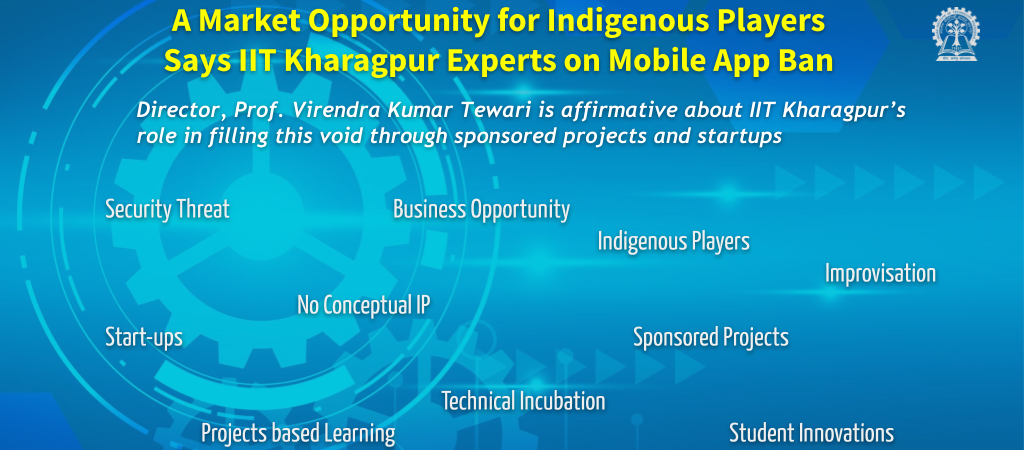
Get down to business, say IIT KGP Experts
A Market Opportunity for Indigenous Players - IIT Kharagpur Experts on Mobile App Ban. Director, Prof. Virendra Kumar Tewari is affirmative about IIT Kharagpur's role in filling this void through sponsored projects and startups Careers360 Times of India Indian Express India Today Business Insider Outlook Live Mint India on June 29 witnessed an unprecedented action in the area of mobile applications. 59 mobile applications developed in China have been banned by MEITY, Govt. of India citing prejudicial activities to…

